Skip to main content
Climate Action

COP28 is the UN Climate Change Conference of 2023
When: 30 November to 12 December 2023
Where: in Dubai, United Arab Emirates
The UN Climate Change Conference in Glasgow (COP26) brought together 120 world leaders and over 40,000 registered participants, including 22,274 party delegates, 14.124 observers and 3.886 media representatives. For two weeks in 2021, the world was riveted on all facets of climate change — the science, the solutions, the political will to act, and clear indications of action.
The outcome of COP26 – the Glasgow Climate Pact – is the fruit of intense negotiations among almost 200 countries over the two weeks, strenuous formal and informal work over many months, and constant engagement both in-person and virtually for nearly two years.
“The approved texts are a compromise,” said UN Secretary-General António Guterres. “They reflect the interests, the conditions, the contradictions and the state of political will in the world today. They take important steps, but unfortunately the collective political will was not enough to overcome some deep contradictions.”
Cuts in global greenhouse gas emissions are still far from where they need to be to preserve a livable climate, and support for the most vulnerable countries affected by the impacts of climate change is still falling far short. But COP26 did produce new “building blocks” to advance implementation of the Paris Agreement through actions that can get the world on a more sustainable, low-carbon pathway forward.
What was agreed?
Recognizing the emergency
Countries reaffirmed the Paris Agreement goal of limiting the increase in the global average temperature to well below 2°C above pre-industrial levels and pursuing efforts to limit it to 1.5 °C. And they went further, expressing “alarm and utmost concern that human activities have caused around 1.1 °C of warming to date, that impacts are already being felt in every region, and that carbon budgets consistent with achieving the Paris Agreement temperature goal are now small and being rapidly depleted.” They recognized that the impacts of climate change will be much lower at a temperature increase of 1.5 °C compared with 2 °C.
Accelerating action
Countries stressed the urgency of action “in this critical decade,” when carbon dioxide emissions must be reduced by 45 per cent to reach net zero around mid-century. But with present climate plans – the Nationally determined Contributions — falling far short on ambition, the Glasgow Climate Pact calls on all countries to present stronger national action plans next year, instead of in 2025, which was the original timeline. Countries also called on UNFCCC to do an annual NDC Synthesis Report to gauge the present level of ambition.
Moving away from fossil fuels
In perhaps the most contested decision in Glasgow, countries ultimately agreed to a provision calling for a phase-down of coal power and a phase-out of “inefficient” fossil fuel subsidies – two key issues that had never been explicitly mentioned in decisions of UN climate talks before, despite coal, oil and gas being the main drivers of global warming. Many countries, and NGOs, expressed dissatisfaction that the language on coal was significantly weakened (from phase-out to phase-down) and consequently, was not as ambitious as it needs to be.
Delivering on climate finance
Developed countries came to Glasgow falling short on their promise to deliver US$100 billion a year for developing countries. Voicing “regret,” the Glasgow outcome reaffirms the pledge and urges developed countries to fully deliver on the US$100 billion goal urgently. Developed countries, in a report, expressed confidence that the target would be met in 2023.
Stepping up support for adaptation
The Glasgow Pact calls for a doubling of finance to support developing countries in adapting to the impacts of climate change and building resilience. This won’t provide all the funding that poorer countries need, but it would significantly increase finance for protecting lives and livelihoods, which so far made up only about 25 per cent of all climate finance (with 75 per cent going towards green technologies to mitigate greenhouse gas emissions). Glasgow also established a work programme to define a global goal on adaptation, which will identify collective needs and solutions to the climate crisis already affecting many countries.
Completing the Paris rulebook
Countries reached agreement on the remaining issues of the so-called Paris rulebook, the operational details for the practical implementation of the Paris Agreement. Among them are the norms related to carbon markets, which will allow countries struggling to meet their emissions targets to purchase emissions reductions from other nations that have already exceeded their targets.Negotiations were also concluded on an Enhanced Transparency Framework, providing for common timeframes and agreed formats for countries to regularly report on progress, designed to build trust and confidence that all countries are contributing their share to the global effort.
Focusing on loss & damage
Acknowledging that climate change is having increasing impacts on people especially in the developing world, countries agreed to strengthen a network— known as the Santiago Network – that connects vulnerable countries with providers of technical assistance, knowledge and resources to address climate risks. They also launched a new “Glasgow dialogue” to discussarrangements for the funding of activities to avert, minimize and address loss and damage associated with the adverse effects of climate change.
New deals and announcements
There were many other significant deals and announcements – outside of the Glasgow Climate Pact – which can have major positive impacts if they are indeed implemented. These include:
Forests
137 countries took a landmark step forward by committing to halt and reverse forest loss and land degradation by 2030. The pledge is backed by $12bn in public and $7.2bn in private funding. In addition, CEOs from more than 30 financial institutions with over $8.7 trillion of global assets committed to eliminate investment in activities linked to deforestation.
Methane
103 countries, including 15 major emitters, signed up to the Global Methane Pledge, which aims to limit methane emissions by 30 per cent by 2030, compared to 2020 levels. Methane, one of the most potent greenhouse gases, is responsible for a third of current warming from human activities.
Cars
Over 30 countries, six major vehicle manufacturers and other actors, like cities, set out their determination for all new car and van sales to be zero-emission vehicles by 2040 globally and 2035 in leading markets, accelerating the decarbonization of road transport, which currently accounts for about 10 per cent of global greenhouse gas emissions.
Coal
Leaders from South Africa, the United Kingdom, the United States, France, Germany, and the European Union announced a ground-breaking partnership to support South Africa – the world’s most carbon-intensive electricity producer— with $8.5 billion over the next 3-5 years to make a just transition away from coal, to a low-carbon economy.
Private finance
Private financial institutions and central banks announced moves to realign trillions of dollars towards achieving global net zero emissions. Among them is the Glasgow Financial Alliance for Net Zero, with over 450 firms across 45 countries that control $130 trillion in assets, requiring its member to set robust, science-based near-term targets.
Read more
COP28: The UN Climate Change Conference in Dubai
From the Secretary-General
Daily podcast
SDG Studio
COP26 highlights

13 November
An agreement to build on
“The outcome of COP26 is a compromise. It reflects the interests, the contradictions and the state of political will in the world today. It is an important step, but it is not enough,” UN Secretary-General António Guterres said at the conclusion of the conference.
Read more
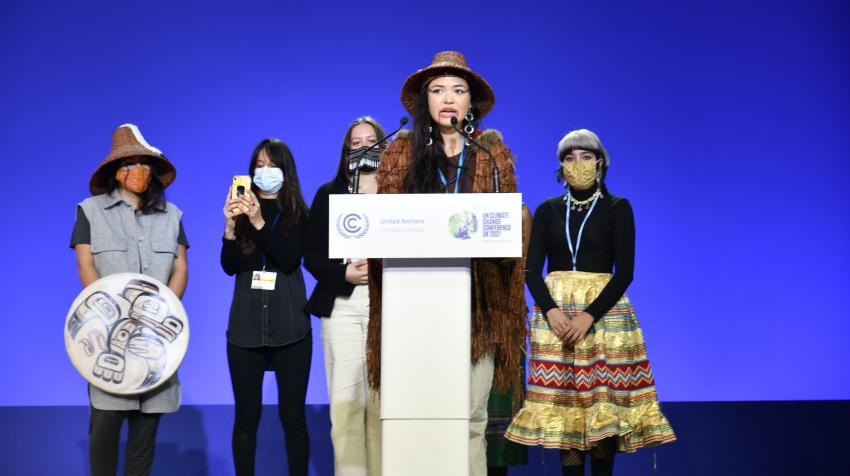
12 November
The longest day
Countries were still locked in negotiations as night descended on the last official day of COP26, with all indications pointing to a long night of working out a final agreement. Earlier in the day, parties met for over three hours to discuss draft texts for the agreement.
Read more

11 November
The credibility test
The COP26 venue seemed less crowded today, with shorter lines through security and slightly more elbow room in the halls. But the conference had a far more frenzied feel, with deadlines looming for the negotiations – and progress reports still showing little progress.
Read more
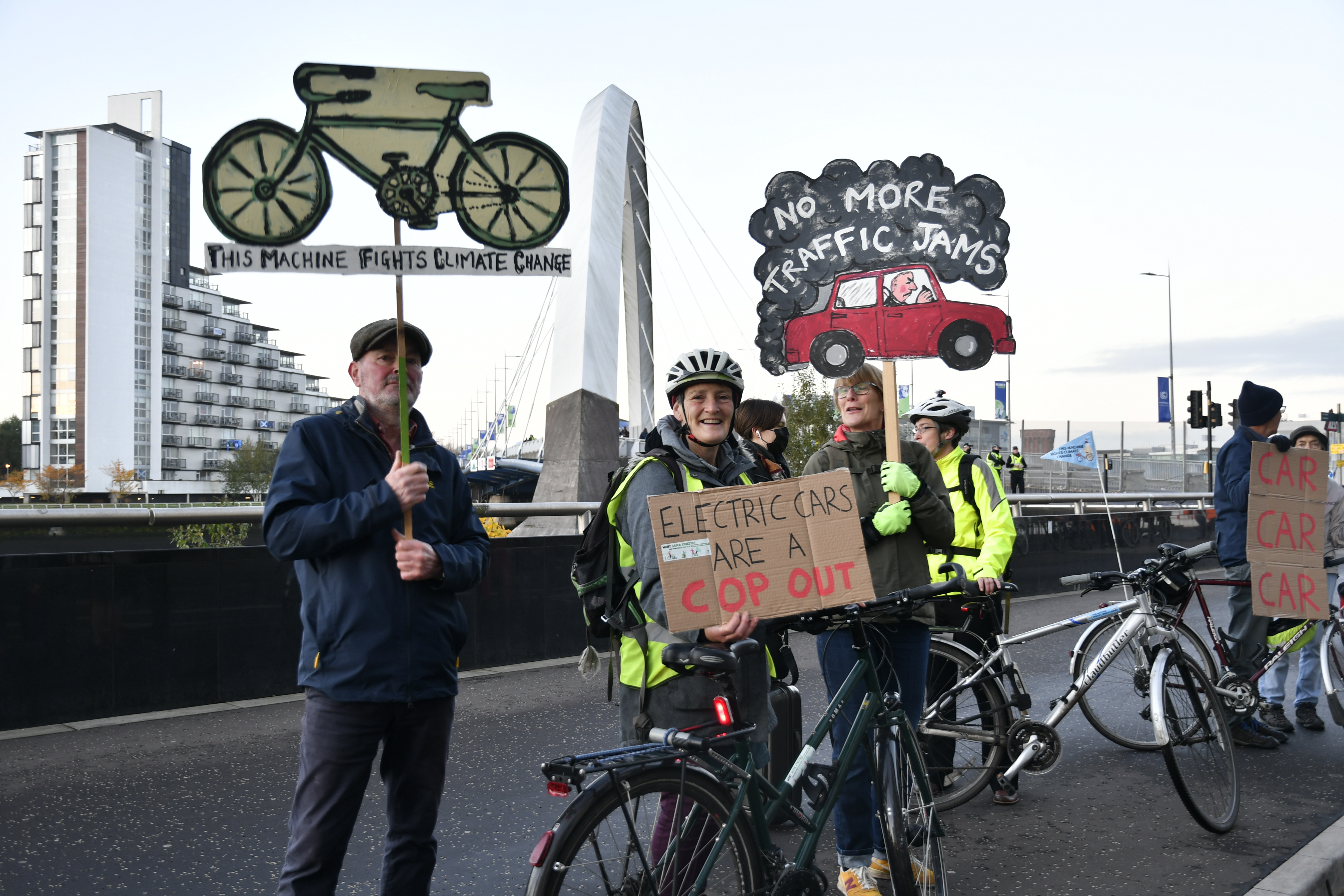
10 November
Ramping up ambition
The UN Secretary-General welcomed today’s blockbuster announcement by China and the United States that they would cooperate on climate. He tweeted, “Tackling the climate crisis requires international collaboration and solidarity, and this is an important step in the right direction.”
Read more
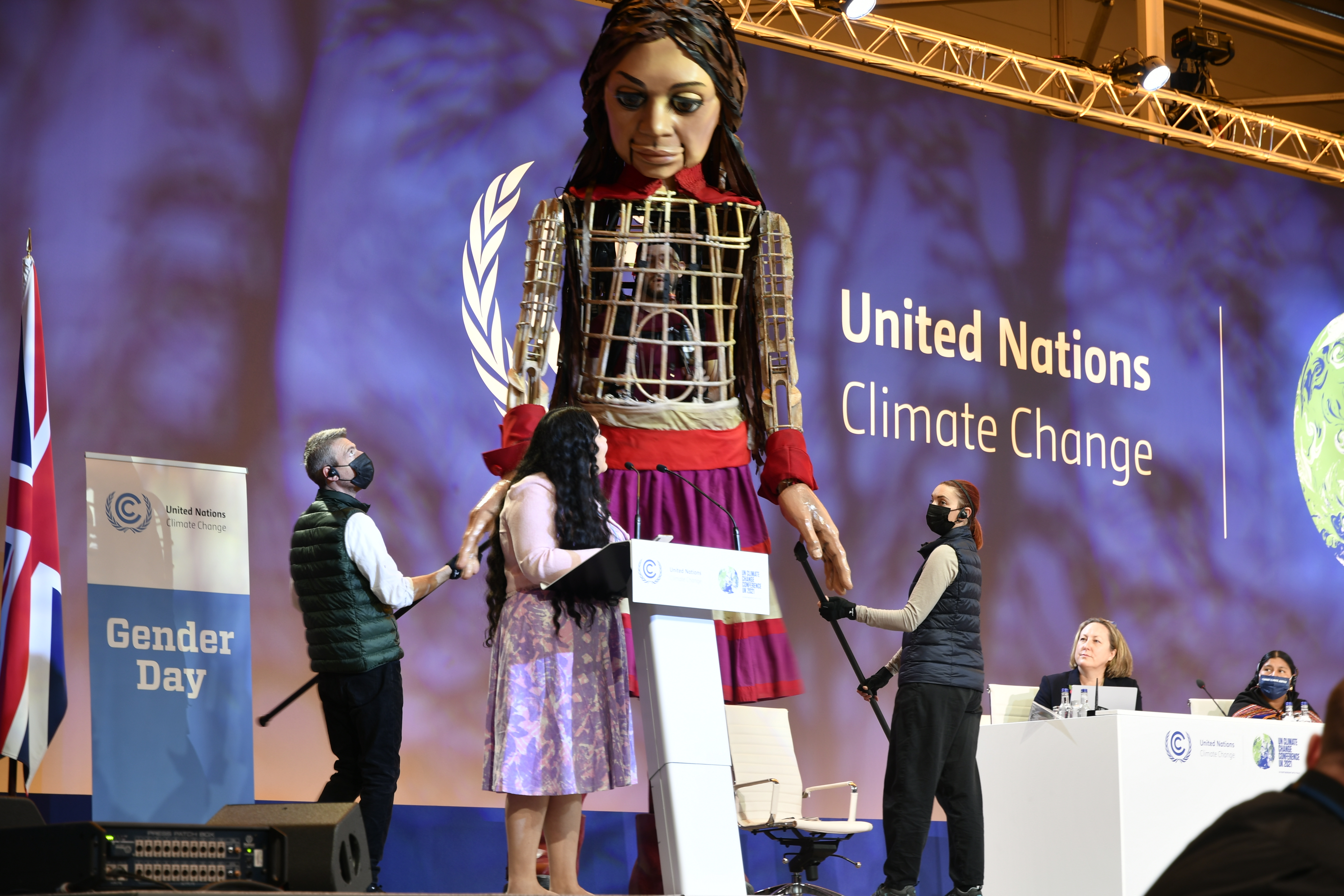
9 November
Repairing a broken world
As parts of COP26 spent a day taking up climate and gender connections, negotiations on a final outcome agreement entered high gear. Ministers led discussions to narrow differences on key issues that will determine climate ambition going forward.
Read more
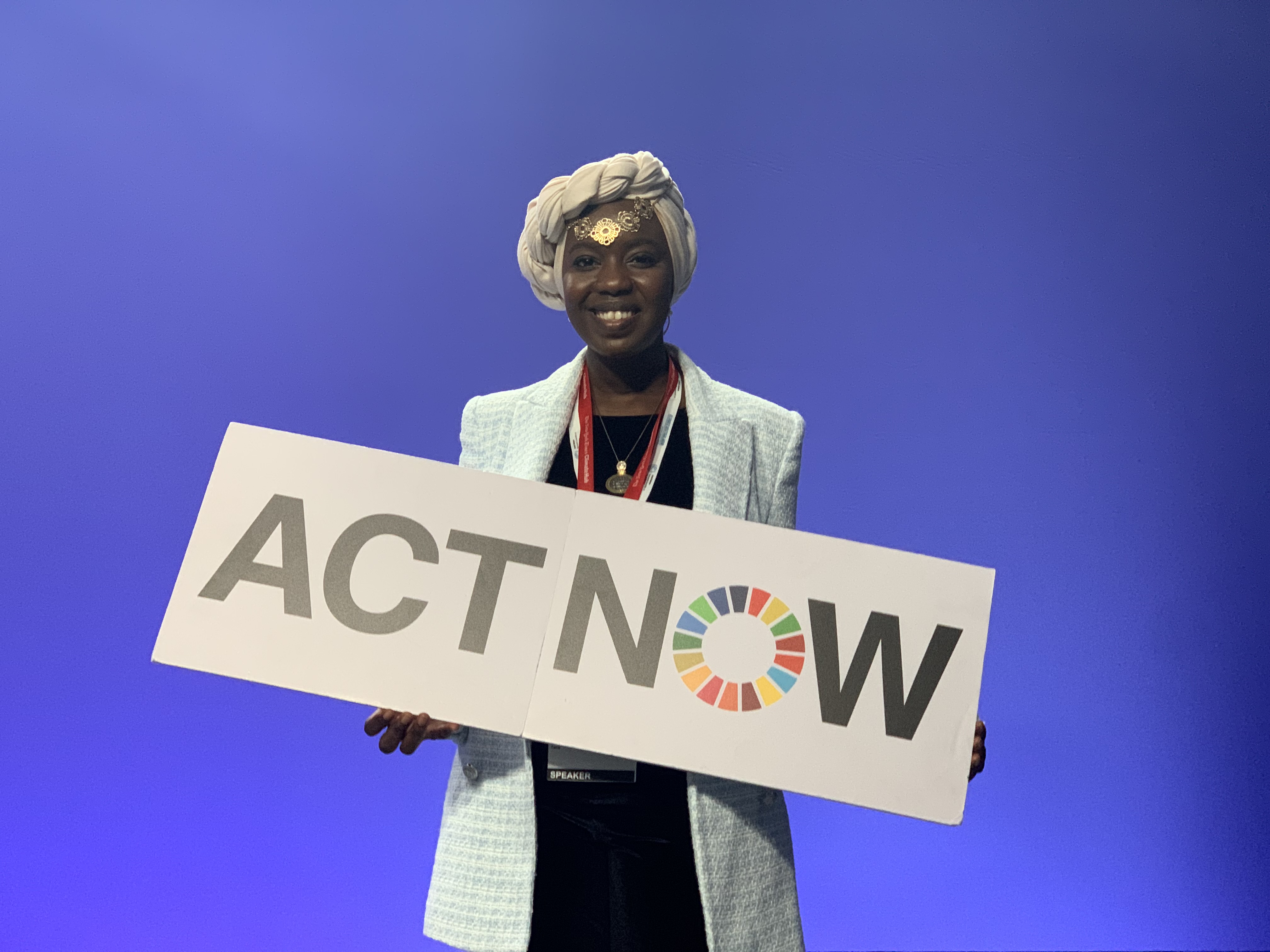
8 November
Adapting to reality
Developing countries warned today that a failure to address gaps in climate finance could hurt efforts to move forward at COP26. Guinea, representing more than 130 developing countries, said “a COP without a concrete outcome on finance can never be successful”.
Read more
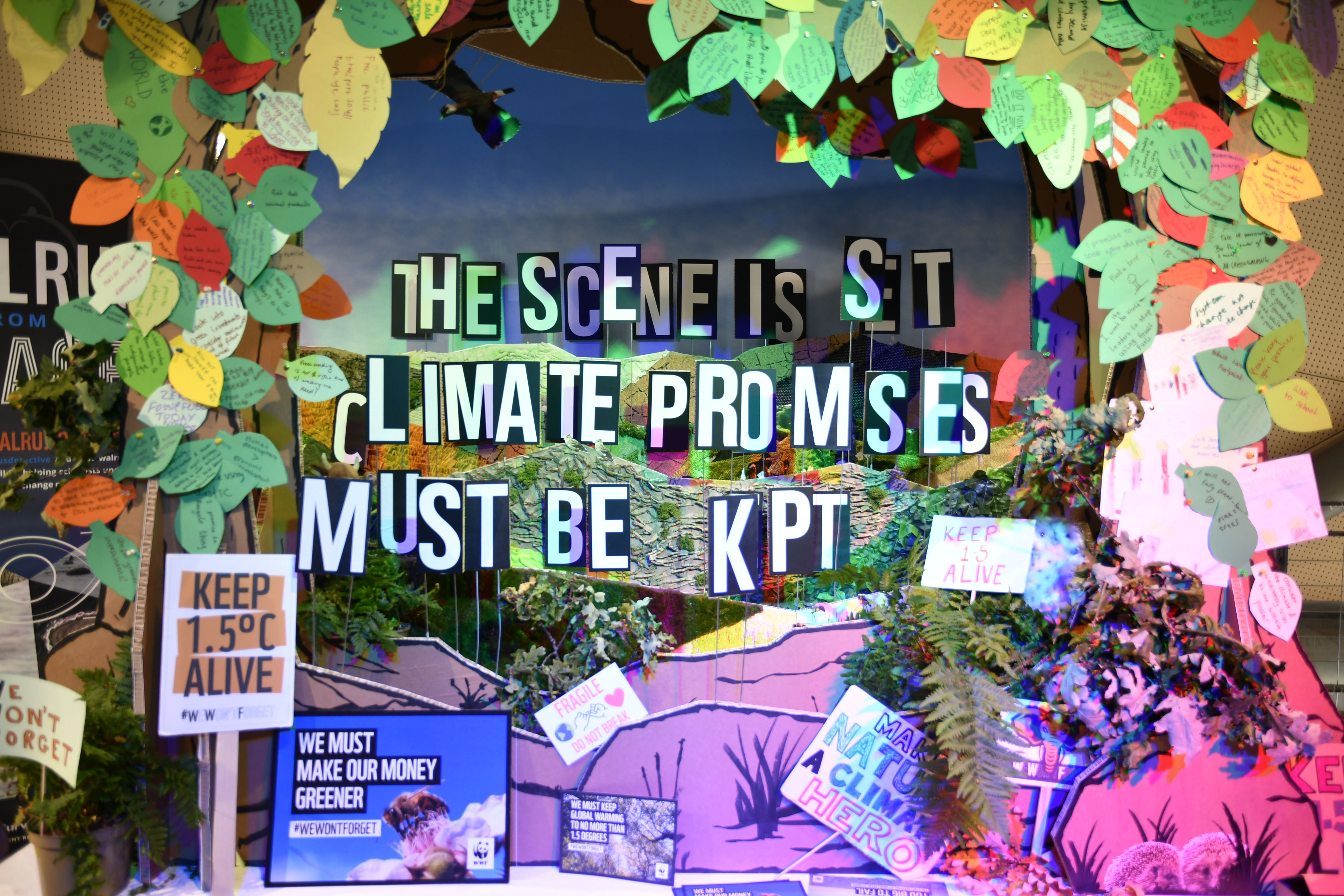
6 November
Sticking points and nature-based solutions
The sunny skies prevailing during the first week of COP26 gave way to a deluge of rain as negotiators struggled to complete a first draft of an outcome document. There was no clear indication of where talks will lead or how ambitious countries will be in tackling the climate emergency. Ministers arriving early next week will seek to resolve points of contention, with COP26 President Alok Sharma calling this “where the rubber hits the road”.
Read more
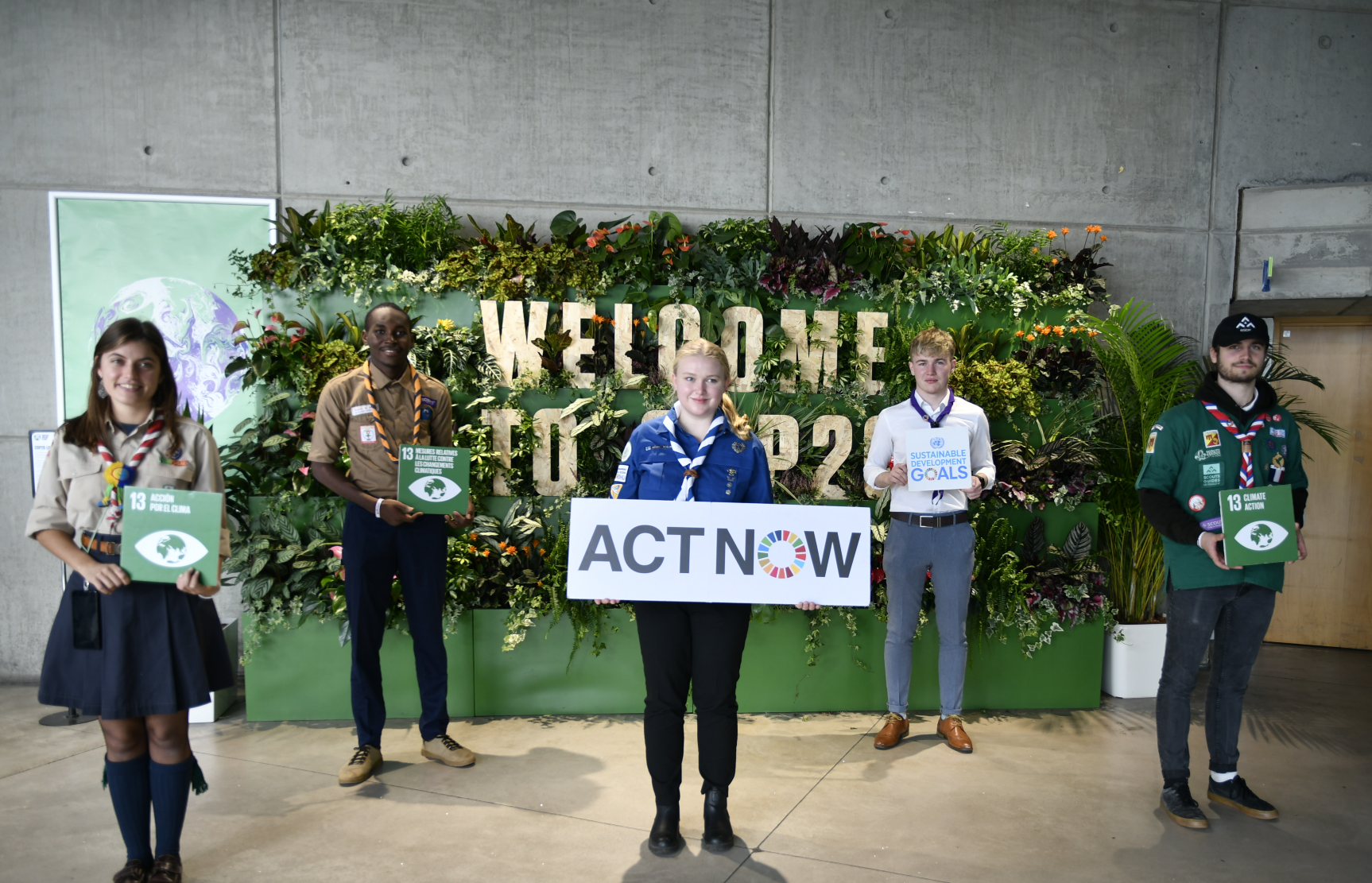
5 November
Youth press for action
Presenting a position paper endorsed by 40,000 people, youth representatives urged world leaders to consider young people’s demands in climate talks. The paper calls for ensuring the representation of underrepresented groups, recognizing the role of cities in achieving a just transition, and respecting, protecting, fulfilling and promote all human rights in climate action.
Read more
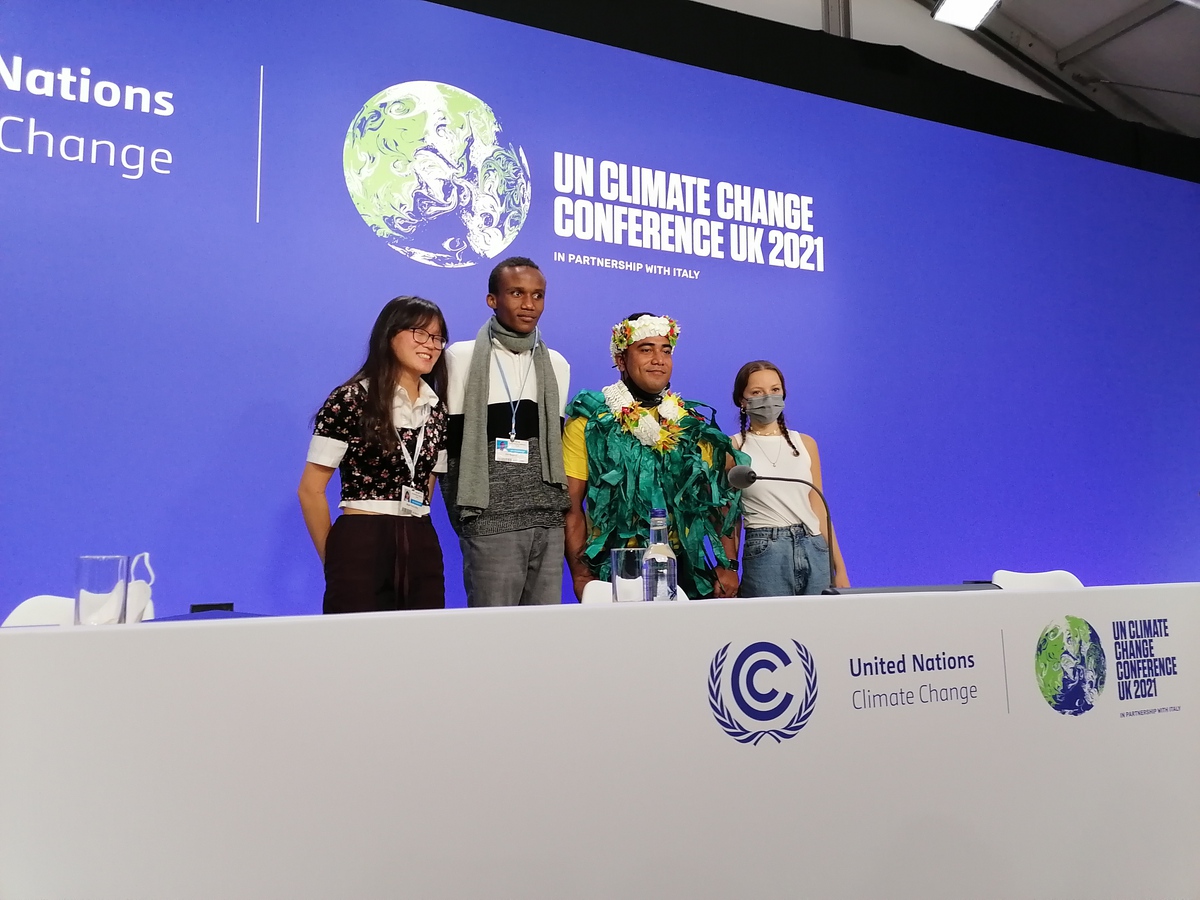
4 November
Powering progress
At the heart of COP26 is the urgent need to reduce greenhouse gas emissions, 80 per cent of which come from energy generation and use. A day dedicated to a future of clean energy saw multiple announcements of new initiatives, funds and pledges to reduce and end coal use, the dirtiest of the fossil fuels. The United Kingdom called for consigning coal to history. Since the Paris Agreement in 2015, the number of planned new coal plants globally has dropped by 76 per cent.
Read more

3 November
Mobilizing the money
World leaders have left Glasgow. Attention at COP26 turned to the specifics of moving the climate action agenda, with a focus on how to finance the transition to a greener future. The issue of finance is all encompassing. There is much concern over the failure of developed countries to meet their promise to provide $100 billion a year to help developing countries finance climate mitigation and adaptation. At the same time, there is a broader effort to mobilize vast amounts of private investment globally behind low-carbon and eventually no-carbon growth.
Read more
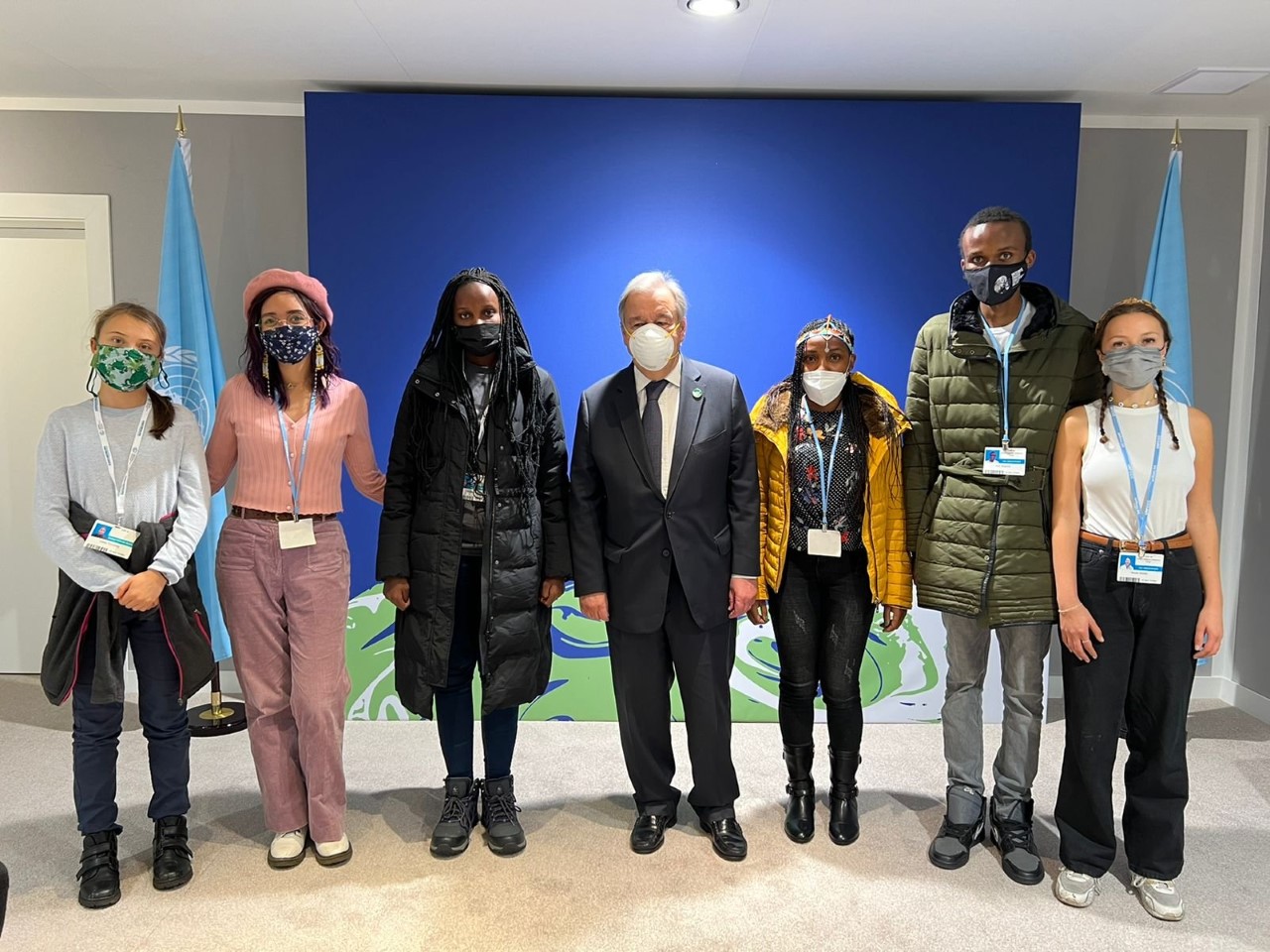
2 November
Taking initiative
The second day of the World Leaders Summit at COP26 had a decidedly different tone, with much of the focus moving from the vast plenary room, where speeches continued, to side events that announced new actions. Bank of America CEO Brian Moynihan said his bank would mobilize $100 billion a year in climate financing. Ecuador said it was expanding the Galapagos marine nature preserve by 60,000 square miles. Major initiatives were launched to reduce methane and slow deforestation.
Read more

1 November
Leaders sound the alarm
There were tough words for, and by, world leaders on why the world needs urgent climate action as the COP26 World Leaders’ Summit got underway. “We face a moment of truth,” UN Secretary-General António Guterres pointedly told the 120 leaders who came to Glasgow. “We are fast approaching tipping points that will trigger escalating feedback loops of global heating.”
Read more

31 October
Huge task ahead for COP26
The Glasgow Climate Conference officially got underway on 31 October with palpable tension. COP26 has to deliver real progress on climate action with the science showing that time is running out. But collective global ambition and trust remain woefully insufficient. “We are not where we need to be,” Patricia Espinosa, the UNFCCC Executive Secretary said at a press conference
Read more
Learn more about climate change
The global talks
Learn about the Paris Agreement on climate change (including a take from Aidan Gallagher). Hear from climate leader Patricia Espinosa about the climate talks in Glasgow.
The science
See the latest research and analysis from the United Nations as well as climate action facts.
Net zero
Which countries are taking steps? Who are the biggest emitters? Our net-zero page explains why we need steep emissions cuts now and tracks country commitments to action.
Adaptation
What is climate adaptation? Why is it so important for every country? Find out how we can protect lives and livelihoods as the climate changes.
Finance
How will the world foot the bill? We explain the issues and the value of financing climate action.
Sustainable Development Goals
Climate action is a global goal. And it contributes to all other SDGs. Learn more.
Facts and figures
- What is climate change?
- Causes and effects
- Myth busters
- Reports
- Fast facts
Cutting emissions
- Explaining net zero
- High-level expert group on net zero
- Checklists for credibility of net-zero pledges
- Greenwashing
- What you can do
Clean energy
- Renewable energy – key to a safer future
- What is renewable energy
- Five ways to speed up the energy transition
- Why invest in renewable energy
- Clean energy stories
- A just transition
Adapting to climate change
- Climate adaptation
- Early warnings for all
- Youth voices
Financing climate action
- Finance and justice
- Loss and damage
- $100 billion commitment
- Why finance climate action
Explainers
- Health
- Food
- Biodiversity
- Ocean
- Water
- Land
- Greenwashing
- Human Security
- Women
- 1.5°C
International cooperation
- Paris Agreement
- What are Nationally Determined Contributions
- Acceleration Agenda
- Climate Ambition Summit
- Climate conferences (COPs)
- Youth Advisory Group
- Action initiatives
- Sustainable Development Goals
Resources
- Secretary-General’s speeches
- Press material
- Interviews
- Fact sheets
- Graphics
- Communications tips




